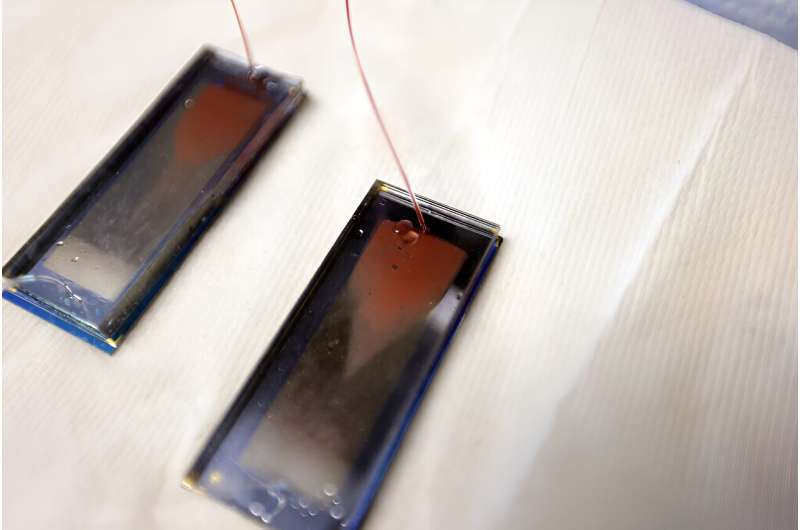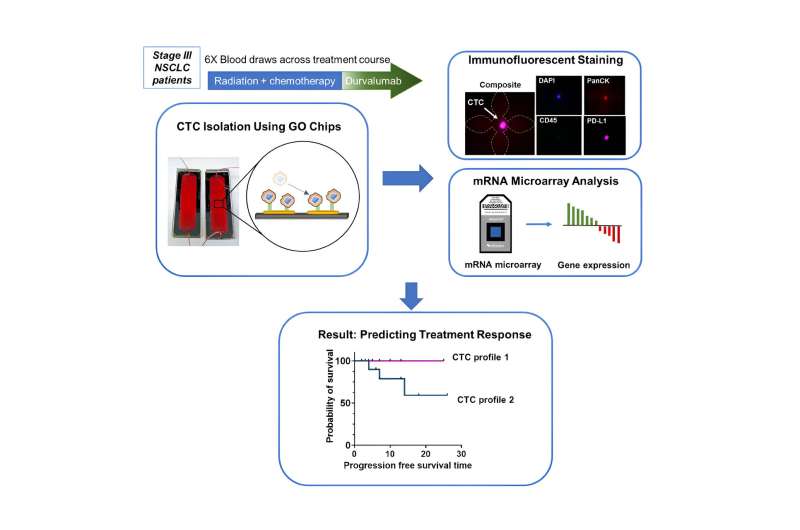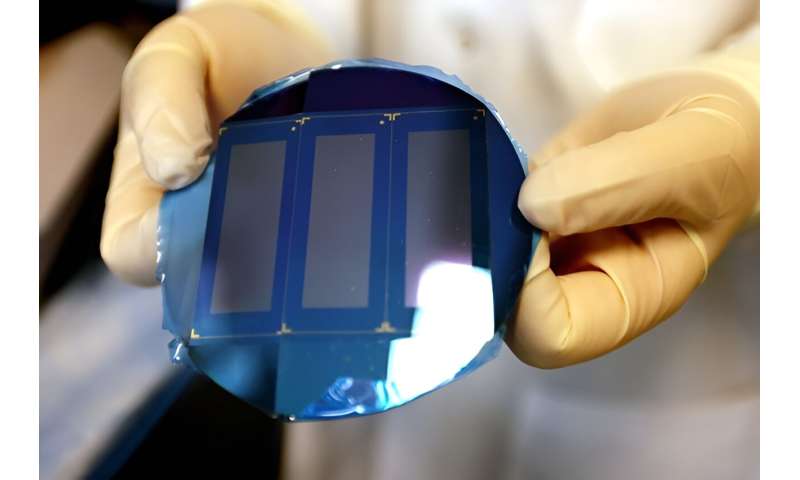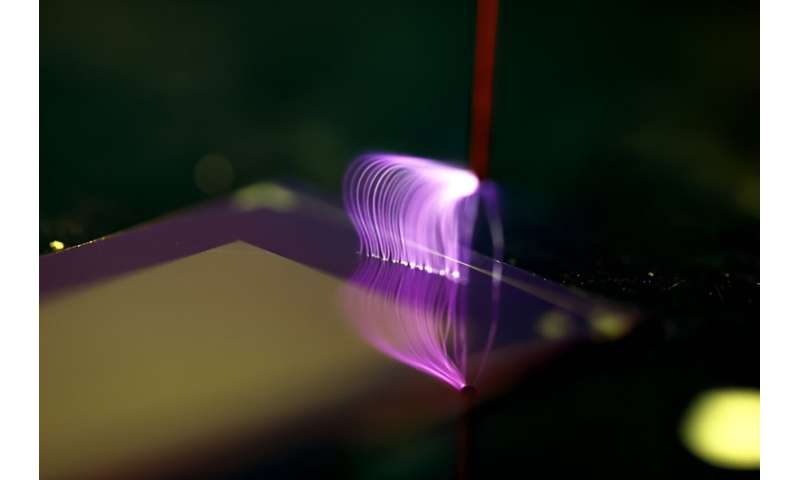This article has been reviewed according to Science X's editorial process and policies. Editors have highlighted the following attributes while ensuring the content's credibility:
fact-checked
peer-reviewed publication
trusted source
proofread
Is lung cancer treatment working? This chip can tell from a blood draw

Using a chip to process blood samples, doctors can monitor the amount of cancer cells in a patient's blood to determine how well a treatment is working by the fourth week, according to a new University of Michigan study.
Such data could allow clinicians to adapt cancer treatments to patients' needs and improve treatment outcomes.
"Currently, there's typically a wait of weeks to months before we can fully assess the effectiveness of cancer treatment," said Shruti Jolly, professor of radiation oncology, associate chair of community practices at U-M and co-corresponding author of the study.
"However, with this chip, we may be able to sidestep prolonged, ineffective therapy and quickly pivot to alternatives, thus saving patients from needless side effects. This technique has the potential to shift cancer diagnostics, moving from a delayed single assessment to a more continuous surveillance and facilitating the delivery of personalized cancer treatment."
The research is published in the journal Cell Reports.
Today, clinicians use CT scans to see if a tumor shrank or grew, but only large changes in size are easily noticed. Tumor biopsies provide more exact information, but they can't be done frequently enough to get regular updates.
That's why many clinicians are turning to liquid biopsies, or tests that look for signs of cancer in the patient's blood, such as cancer cells that tumors have shed. Blood samples can be collected frequently, but they are only useful if the cells are present in high enough levels for biomedical instruments to detect.

Lung cancer is a particular problem. Other FDA-approved tools for detecting cancer cells in blood samples have proven ineffective for monitoring lung cancer treatments—likely because they targeted a single protein on the cells' surfaces that is less common in lung cancers, the researchers say.
"We were looking for more sensitive markers of cancer that we could use to closely monitor treatments," said Sunitha Nagrath, professor of chemical and biomedical engineering and one of the study's corresponding authors.
"In some cases, only about half of cancer patients respond to the treatments, leaving the rest with poor outcomes. Treatments may also be expensive and cause adverse reactions in some patients, so it's important for clinicians to know early on whether a treatment is going to be effective—or whether they may be better off with a different treatment."
The "GO chip" developed by Nagrath's team, first demonstrated in 2013, succeeded where others fell short. It traps cancer cells like a piece of flypaper traps flies. But unlike flypaper, the chip only catches its target. Antibodies mounted on microscopically thin sheets of graphene oxide in the chip—which give the device its name—recognize a wide array of cancer-specific protein markers found on the surfaces of cancer cells.
As the blood is pushed through channels in the chip, the antibodies trap cells, eventually concentrating enough to work with. With the cells locked in place, the researchers can not only count them but confirm that they are indeed cancerous and determine how the cells' biochemistry varies between patients and treatment stages.
-

Part of the GO chip manufacturing process takes place in Nagrath's lab. They start with silicon wafers, on which a tight array of gold dots have been etched into a rectangle pattern at the Lurie Nanofabrication Facility. The gold attracts the graphene oxide, each sheet only a single layer of atoms thick, and the antibodies are attached to the graphene oxide. These antibodies are what allow the chips to trap cancer cells. Credit: Brenda Ahearn, Michigan Engineering -

To attach the GO chips’ covers, the engineers use a “corona wand,” which creates a high-voltage electric current that heats air into plasma. The plasma adds an electric charge to the chip that forms a permanent bond with the materials on the chip cover. The result is a tight seal that doesn’t allow any fluid to escape from the microscopic channels in the chip. Credit: Brenda Ahearn, Michigan Engineering
To test that the GO chip could monitor lung cancer treatments, the researchers used it to collect cancer cells from the blood of 26 patients receiving both chemotherapy and immunotherapy for stage 3 lung cancer. The researchers took samples before cancer treatment and after the patients' first, fourth, 10th, 18th and 30th weeks of treatment.
Their experiment revealed that when the number of cancer cells in a patient's blood doesn't decrease by at least 75% by the fourth week of treatment, their cancer is more likely to persist after treatment.
The study also showed that cancer cells collected from patients whose cancer did not respond to treatment had activated genes that may have made the cancer resilient. These genes might be good targets for future cancer therapies, but further study is required to test this idea.
More information: Emma Purcell et al, Circulating tumor cells reveal early predictors of disease progression in patients with stage III NSCLC undergoing chemoradiation and immunotherapy, Cell Reports (2024). DOI: 10.1016/j.celrep.2024.113687




















